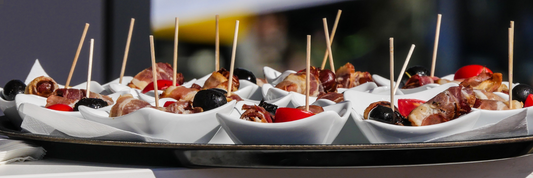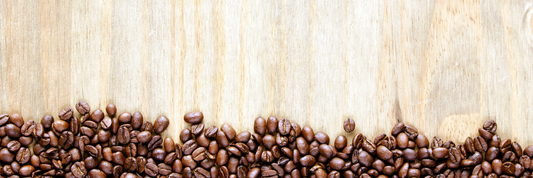In everyday cooking and baking, understanding measurements is crucial. One of the most common questions is "How many ounces is a cup?" Knowing the correct conversion between cups and ounces helps ensure recipe success, particularly when switching between different measurement systems like the U.S. customary system, metric system, and imperial system. This guide dives deep into these conversions, helping you confidently measure ingredients, whether for baking, cooking, or mixing beverages.
Understanding Cup Measurements in Different Systems
U.S. Standard vs. Imperial System
The U.S. customary system and the imperial system are often confused, but they measure volume differently. While a U.S. cup equals 8 fluid ounces, an imperial cup contains 10 fluid ounces. Understanding this distinction is critical when following recipes from different regions.

Metric System and Cups
Unlike the U.S. system, the metric system uses liters, but cups are still common in some regions. In the metric system, 1 metric cup equals 8.45 U.S. fluid ounces. Knowing this conversion will help when using international recipes.
What is An Ounce? What is a Cup?
An ounce (oz) is often used in the U.S. and the United Kingdom. You can understand that an ounce is a unit of measurement for weight. A unit of weight equal to approximately 28.35 grams.
A "cup" is a volume measuring unit that expresses how much space a substance occupies or how much it can contain. In the United States, a cup is equivalent to 8 fluid ounces; however, in other countries, it could be slightly different.
How Many Ounces is a Cup?
With fluid ounces, we have an exact per-cup measurement. However, to dry ounces, how many ounces in a cup will depend on what you are measuring. Because dry ingredients have various shapes, sizes, and forms.
For example:
- Flour - which weighs 4.5 ounces per cup
- Sugar - which weighs about 7 ounces per cup
For this reason, the majority of dry materials for baking are also typically measured using a kitchen scale. Accuracy is ensured when measuring by weight rather than volume. But if a measuring cup is the only tool that you have, then knowing how many ounces are in a cup will be helpful.
How Many Fluid Ounces in a Cup?
With liquid ingredients, it is easy to remember. Liquids are measured in fluid ounces, and there are 8 fluid ounces in 1 cup (this applies to all liquids).
Let's see the liquid ingredient conversion chart below:
| Ounces (fl oz) | Cups | Milliliters (mL) | Tablespoons (Tbsp) |
| 2 fl oz | 1/4 cup | 59 mL | 4 Tbsp |
| 2 2/3 fl oz | 1/3 cup | 79 mL | 5 Tbsp |
| 4 fl oz | 1/2 cup | 118 mL | 8 Tbsp |
| 5 1/3 fl oz | 2/3 cup | 158 mL | 10 Tbsp |
| 6 fl oz | 3/4 cup | 177 mL | 12 Tbsp |
| 8 fl oz | 1 cup | 237 mL | 16 Tbsp |
| 12 fl oz | 1 1/2 cups | 355 mL | 24 Tbsp |
| 16 fl oz | 2 cups | 474 mL | 32 Tbsp |
| 32 fl oz | 4 cups | 948 mL | 64 Tbsp |
| 64 fl oz | 8 cups | 1896 mL | 128 Tbsp |
Look at this table, you can answer a lot of questions, such as how many ounces are in a half cup, a third cup, and even a quarter cup, how many milliliters are in a cup...

You can use this formula to multiply your cup measurement (x) by 8 ounces.
For example, how many ounces are in a quarter cup, a third of a cup, and a half cup:
- ¼ cup (or 0.25 cup) x 8 fl oz = 2 fl oz
- ⅓ cup (or 0.33 cup) x 8 fl oz = 2.64 or 2.6 fl oz
- ½ cup (or 0.5 cup) x 8 fl oz = 4 fl oz
Double Wall Kraft Paper Coffee Cups | 4,8,10,12,16 Oz
White Single Wall White Paper Cup | 8,10,12,16 Oz
How Many Dry Ounces in a Cup?
For dry ingredients such as sugar, flour, or oats, the standard measurement is a dry ounce. However, there is no exact answer for how many ounces are in a cup of dry ingredients.
For example:
- 1 cup of all-purpose flour = 128 grams or 4.5 oz.
- 1 cup of white sugar = 198 grams or 7 oz.
Let’s see the dry ingredients conversion chart below:
|
Ingredients |
Cup (c) |
Ounces (oz) |
Grams (g) |
|
Flour |
1 cup |
4 ⅖ to 4 ½ oz |
125 to 127g |
|
Baker’s Special Sugar (superfine sugar, caster sugar) |
1 cup |
6 ¾ oz |
190 g |
|
Sugar (granulated white) |
1 cup |
7 oz |
200 g |
|
Packed Brown Sugar (light or dark) |
1 cup |
7 ½ oz |
213 g |
|
Cheese (coarsely grated cheddar, jack, mozzarella, or Swiss) |
1 cup |
4 oz |
113 g |
|
Butter |
1 cup |
8 oz |
227 g |
|
Baking Powder |
1 teaspoon |
0.16 oz |
0.16 oz |
|
Baking Soda |
½ teaspoon |
0.081 oz |
3 g |
|
Almond Flour |
1 cup |
3 ⅛ oz |
96 g |
|
Whole Almonds |
1 cup |
5 oz |
142 g |
|
Chocolate Chips |
1 cup |
6 oz |
170 g |
|
Chocolate Chunks |
1 cup |
6 oz |
170 g |
|
Cacao Nibs |
1 cup |
4 ¼ oz |
120 g |
|
Fresh Blueberries |
1 cup |
5 to 6 oz |
140 to 170g |
|
Crushed Graham Crackers |
1 cup |
5 oz |
142 g |

How to Measure Dry And Liquid Ingredients
There are some tools to measure dry and liquid ingredients such as liquid measuring cups, measuring spoons,....
Liquid Measuring Cup
Graduated measuring cups, often known as liquid measuring cups, are tools used to measure liquid ingredients such as water, milk, coffee, etc. They're usually made of plastic or glass with graduated markings that let you see how much liquid you’re pouring.
Granulated/Dry Measuring Cup
Dry measuring cups are usually made of plastic or metal. When using dry measuring cups, you should sift your ingredients through a sieve or a baking sifted before measuring for a more accurate result.
Measuring Spoons
In the kitchen, measuring spoons are also a needed tool. There are a lot of cooking recipes that use tablespoons or teaspoons when listing ingredient quantities. Besides that, these spoons can be used for both dry and wet ingredients.
Compostable Bamboo Soup Spoon Wholesale, Fast Delivery in Canada
Should I Use Measuring Cups or Scales?
Cups can be used to measure liquid ingredients just as precisely as a measuring scale. Through the above sections, you already have an idea of how many ounces are in a cup, so you can switch between the two as you wish.
However, you need to pay attention to how the recipe says you should prepare the ingredients. Because a cup of spinach that has been finely chopped will weigh more than loosely packed spinach. Or a cup of shredded cheese will weigh more than a cup of chunky cheese because you can fit more of it in.
If you want to measure exact amounts of ingredients, you should use measuring cups. In contrast, if you want to measure the weight of an ingredient or a dish, it is recommended to use scales.
What Cup Sizes Should You Offer in Your Coffee Shop?
If you are operating a cafe shop, takeaway, grocery store, or restaurant, and you have an idea to use or sell paper cups. You must be aware of the typical sizes for takeaway coffee cups.

Standard takeaway cup sizes often range from 4 oz. to 16oz.
|
This is the smallest cup size suited to drinks such as espresso, cortado, and piccolo. |
|
|
8 oz is a medium size. This size is perfect for drinks that contain more liquid than an espresso but are not as large as lattes, such as flat whites. |
|
|
This large cup is ideal for beverages with milk, like lattes, mochas, and cappuccinos. They can also be used for cold drinks like cold brew, iced lattes, and Americanos. |
|
|
For iced beverages, some coffee shops provide an extra-large choice and favour using this size cup. |
How to Start a Coffee Shop Business from Scratch – A Beginner’s Roadmap to Success
You can consider coffee cup sizes of some famous coffee chains below:
|
Coffee chain |
Cup sizes available |
Approximate capacities |
|
Tim Hortons |
Extra Small (XS) |
XS: 8 oz / 237 ml |
|
Small (S) |
S: 10 oz / 295 ml |
|
|
Medium (M), |
M: 14 oz / 414 ml |
|
|
Large (L), |
L: 20 oz / 591 ml |
|
|
Extra Large (XL) |
XL: 24 oz / 710 ml |
|
|
Starbucks |
Short |
Short: 8 oz / 236 ml |
|
Tall |
Tall: 12 oz / 354 ml |
|
|
Grande |
Grande: 16 oz / 473 ml |
|
|
Venti |
Venti: 20 oz / 591 ml |
|
|
Trenta |
Trenta: 30 oz / 887 ml |
|
|
Dunkin’ |
Small |
Small: 10 oz / 296 ml |
|
Medium |
Medium: 14 oz / 414 ml |
|
|
Large |
Large: 20 oz / 591 ml |
|
|
Extra Large |
Extra Large: 24 oz / 710 ml |
|
|
McDonald’s |
Small |
Small: 12 oz / 355 ml |
|
Medium |
Medium: 16 oz / 473 ml |
|
|
Large |
Large: 21 oz / 621 ml |
|
|
Extra Large |
Extra Large: 30 oz / 887 ml |

FAQs About Convert Oz to Cup
How Many Ounces In A Cup Of Shredded Cheese?
One cup of shredded cheese is approximately 4 ounces
How Many Ounces In A Cup of Coffee?
There are 6 ounces in a standard cup of coffee.
How Many Ounces In A Cup Of Flour?
Flour, especially all-purpose flour, typically weighs 4.5 ounces per cup, but this can vary depending on whether the flour is sifted or packed.
How Many Ounces In A Cup Of Sugar?
Different sugars weigh differently:
- 1 cup of granulated sugar = 7 ounces.
- 1 cup of brown sugar (packed) = 8 ounces.
- 1 cup of powdered sugar = 4 ounces.
How Many Ounces In A Cup Of Butter?
Butter is often measured in sticks, but 1 cup of butter equals 8 ounces.
How Many Ounces in a Cup of Water?
Water has a straightforward conversion: 1 U.S. cup equals 8 fluid ounces.
How Many Ounces in a Cup of Milk?
Milk, like water, follows the same conversion: 1 cup equals 8 fluid ounces.
How Many Ounces in a Cup of Oil?
Cooking oils also follow the standard conversion of 1 cup = 8 fluid ounces.
How Many Ounces in a Cup of Honey?
Honey, being denser than water, weighs more. 1 cup of honey equals approximately 12 ounces by weight.
How Much Is 1 Cup In Grams? (1 cup to gram)
There are 240 grams in a cup.
How Many ML Is In A Cup? (1 cup to ml)
There is 236.6 ml in a cup.
Are 2 Tablespoons Equal To 1 Ounce?
Yes. 2 tablespoons are equal to one fluid ounce, 1/8 cup, 6 teaspoons, 30 mL, and 30 ccs.
How Many Pints In A Quart?
There are two pints in one quart.
How Many Cups Are In A Gallon?
There are 16 cups in one gallon or 128 fluid ounces.
How Many Quarts In A Gallon?
There are four quarts in one gallon.
How Many Ounces In A Litre?
There are 33.814 fluid ounces in a liter.
How Many Cups In A Liter?
There are approximately 4.17 standard US cups in a liter.
Conclusion
Understanding the difference between fluid ounces, dry ounces, and how they convert to cups is vital for achieving perfect results in the kitchen. Whether you're following a baking recipe or preparing a new dish, this guide provides a comprehensive overview of conversions and helps ensure your measurements are spot on. For more accurate and consistent results, consider using a kitchen scale and sticking to the appropriate measurement system for the recipe you are following.
Related Articles:





